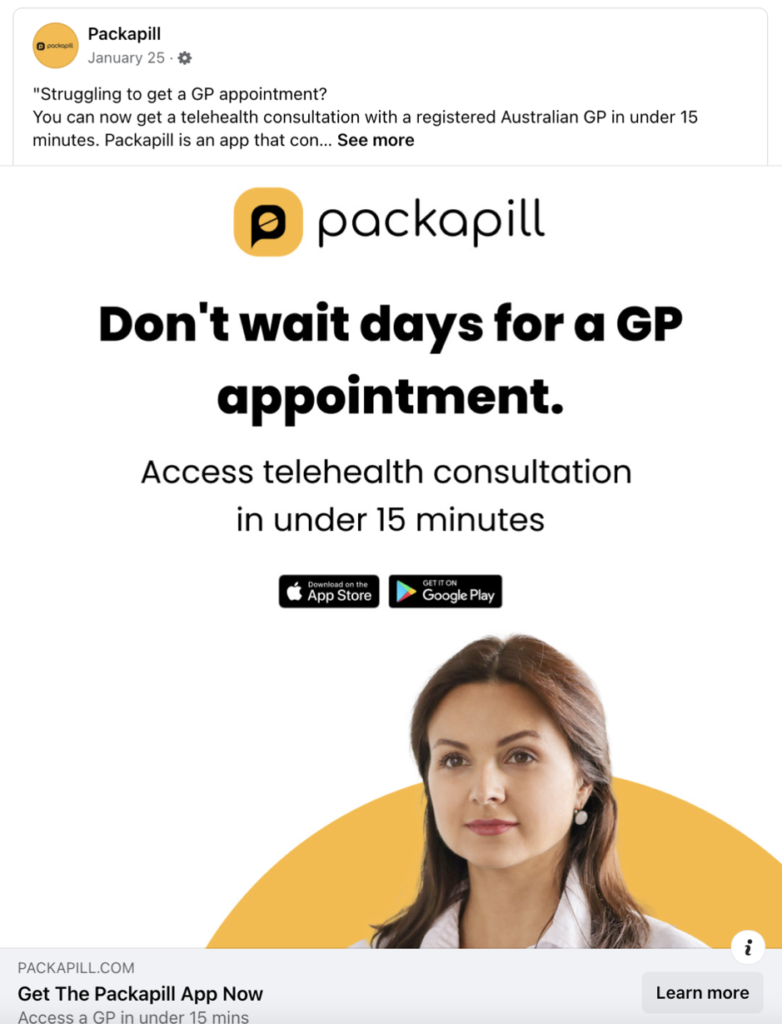
As a GP scrolling my social-media feed, I see the ads every day.
Need a medical certificate? Get one sent straight to your inbox. Want a script? Just fill out this form and our online doctors will send it to your pharmacy. Suffering from hair loss? Complete some details and we will deliver the medication straight to your door. Thinking about starting the pill? Text our doctor and we’ll sort out the rest.

Every time another online-only provider pops up, there is a collective groan from the general practice community. The marketing is invariably the same: a barrage of complaints about wasting time at the GP or not being able to get an appointment. Just go to our website, give some details (and a credit card) and all your problems are solved. These providers are often addressing a very specific patient problem and typically do this in a very convenient way, albeit for a price. As a GP group, we cry foul and lament the lack of proper process. But why do we fear this change?
Our profession has had total control over primary care for decades. But much like the taxi industry, we have become complacent. We continue to demand patients return to the clinic for scripts. We refuse to have results released to patients without a consultation. We leave paperwork at the front desk to be picked up and refuse to engage with our patients outside of a Medicare-rebatable consult. Patients expect more.
The banking industry is a great benchmark for the situation we find ourselves in. Ten years ago, there was no digital solution to most banking problems; however, I now set foot in a branch only when it’s completely necessary. Why shouldn’t patients expect the same from us? Why shouldn’t safe, asynchronous consultations be occurring? And more importantly, why shouldn’t this be with their regular GP?
History tells us that change never starts with the government or Medicare rebates. The shift towards private billing reinforces how we can’t rely on the public purse to pay for quality or innovative care. Meaningful change needs to occur and patients are already voting with their smartphones. The online-only providers are leading this charge but only because we as GPs have failed to give patients what they want in this space.
So, when a new company appears and sells our patients convenient, on-demand services, we should see this as a learning opportunity rather than a threat. Why aren’t I providing this as my patients’ GP? Where is the option for patients to get this from me, the safe provider with a knowledge of their history? Is continuity of care being taken away or am I failing to provide for it?
In order for quality general practice to survive, we need to adapt. These services need to live within our local practices. A patient lost to yet another start-up is not a patient wooed by a marketing campaign. Instead, this is an opportunity we have given up. Our stubborn refusal to provide for modern expectations is the opportunity these companies are preying on. Getting young, technology-savvy patients back to quality local general practice care requires a change on our end.
So, let’s learn from this world of on-demand services, and find a way to do it right. Convenience can be combined with qualified, quality local care. It just requires some flexibility of thought on our end.
Dr Max Mollenkopf is a GP and practice owner in Newcastle, NSW.

